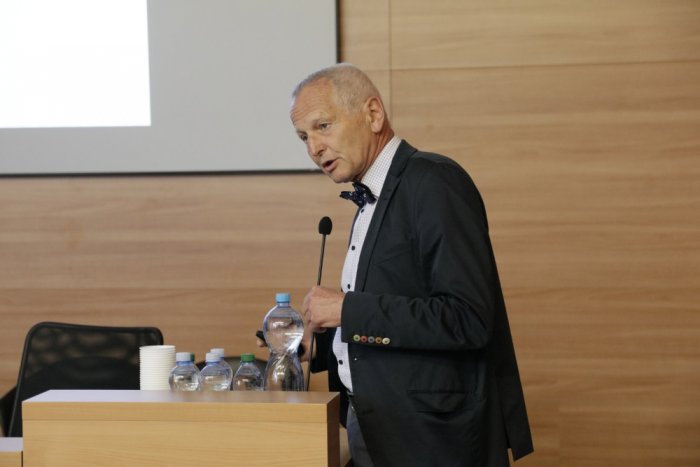
SECOND SEMINAR OF THE JOINT PRECLINICAL AND CLINICAL RESEARCH INITIATIVE IN IKEM AND IPHYS

Physicians and scientists from the Institute of Clinical and Experimental Medicine (IKEM) and the Institute of Physiology of the Czech Academy of Sciences (IPHYS) are working together to improve prevention and treatment of the most serious diseases of today.
On May 22, 2019, the IPHYS hosted a meeting of leading Czech physicians and scientists focused on advances in prevention, diagnosis and treatment of serious lifestyle diseases.
The IKEM and the IPHYS have been working together to make progress in prevention and treatment of cardiovascular diseases, their most common risk factors such as obesity and diabetes, and their chronic complications. During the second seminar of joint preclinical and clinical research at the IKEM and the IPHYS, both institutions presented primarily the results of successful collaboration of their research teams during 13 lectures and 23 poster presentations.
Although the focus of biomedical research is shifting to cancer research, most people still die of cardiovascular diseases (CVDs). In recent decades, there has been an improvement in monitoring of some CVD risk factors such as arterial hypertension or dyslipidemia, but new threats to the Czech population, especially obesity and obesity-related type 2 diabetes, are gaining importance. These diseases clearly represent major risk factors for the future wave of CVDs, such as premature atherosclerosis, ischemic heart disease, atrial fibrillation, and heart failure. In the rise of obesity and diabetes, the Czech Republic ranks among top countries in the EU, and CVD mortality in the Czech Republic is almost twice as high as in most developed EU countries. In fact, it is the most common cause of death among the Czech population (half of all deaths).
The second key area is the treatment of complex multifactorial metabolic diseases such as type 2 diabetes mellitus. Despite billions of dollars invested in research on new therapies and 100 years after the discovery of insulin, there is still no effective long-term treatment that would cure this complex disease. In particular, the number of patients with type 2 diabetes has skyrocketed leading to a modern epidemic, which imposes a heavy burden not only on healthcare but also on the social systems of all developed countries in the world. This increase is especially related to inappropriate lifestyles and also to the ageing of the population. In the Czech Republic, nearly one million people are currently being treated for diabetes. Moreover, estimates indicate that 300,000 additional patients have not been diagnosed.
What contributes to this alarming situation is the lack of support of biomedical research in this area, particularly the lack of research integration that would make use of existing infrastructure and human resources. There is no centre that could integrate and strengthen existing preclinical and clinical research in the field of CVD-related diabetes and obesity and that could provide a translational phase of research with the transition of new pharmaceuticals and therapeutic approaches to clinical practice directly in the Czech Republic.

